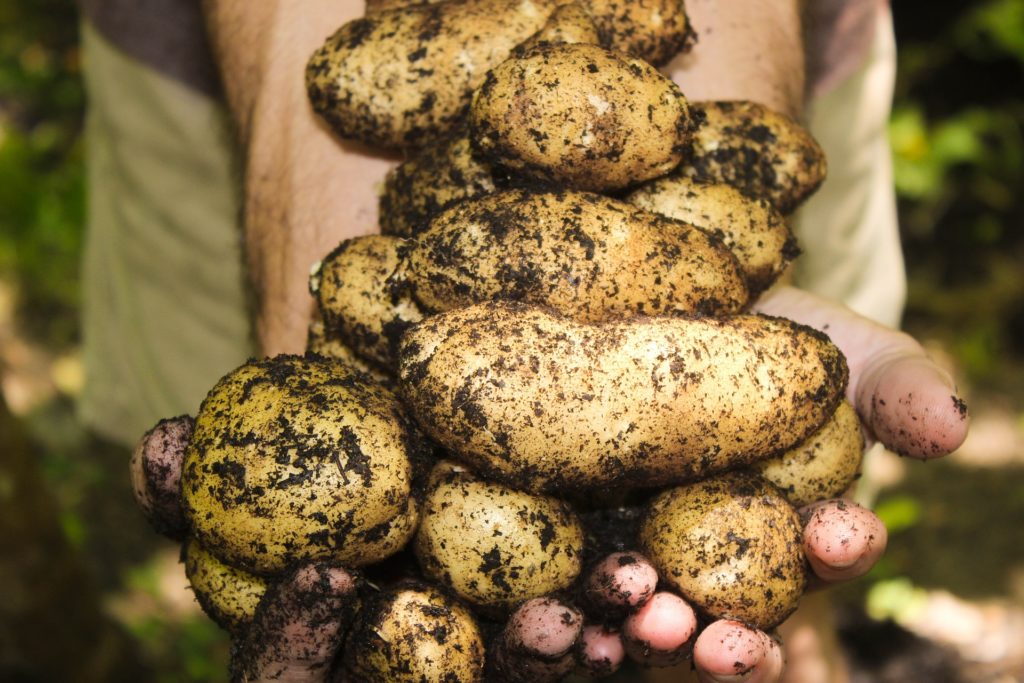Sustainable and organic food products are in high demand because of the growing number of environmentally conscious consumers. This is why major food companies have been investing in producing USDA organic products. However, according to a nonprofit organization called The Real Organic Project, the USDA’s organic standards do not promote the practices of traditional organic farming. So, the organic farmers and advocates that make up The Real Organic Project have decided to introduce a new organic label that identifies truly organic foods which are produced through traditional organic farming requirements.
In order for a food product to be certified as USDA organic, manufacturers must adhere to federal guidelines that address soil quality, animal raising practices, pest and weed control and the use of additives. In order for produce to be certified as organic, farmers must grow their products in soil that has had no prohibited substances (such as synthetic fertilizers and pesticides) added to it in past three years. Certified organic meat products are required to come from animals that are raised in living conditions that accommodate their natural behaviors (such as the ability to graze on a pasture), not administered antibiotics or hormones and fed 100 percent organic feed. Processed foods that are certified as organic must not contain any artificial preservatives, colors or flavors and must be made with organic ingredients.
However, the USDA recently expanded their organic certification program to include hydroponic farming and Concentrated Animal Feeding Operations (CAFOs), which is why The Real Organic Project is rallying against them. Hydroponic farming is the practice of growing plants in a liquid nutrient solution rather than traditional soil, which has the benefits of using 20 times less water and space for farming and allows farmers to grow all year round. However, hydroponic farming requires constant monitoring because they are vulnerable to power outages, easily infected by water-based microorganisms and all plants in the system can be infected once a microorganism appears. The USDA’s approval of CAFOs under the organic certification is even more surprising and contradictory as CAFOs are known to be on farms that have a concentrated number of animals in confinement. Large CAFOs contain up to 1,000 or more cows and 125,000 or more chickens, which contradicts the original organic requirement for animals being accommodated to their natural behaviors.
These new standards conflict with The Real Organic Project’s definition of organic as they stand for improving soil fertility and animal welfare. Which is why the organization has announced the release of their provisional standards for the additional label.
“All we are seeking is transparency. Our message is clear and simple. Organic farming must be based on healthy soil, with plants and animals as an integral part of that soil ecosystem. The only radical thing about our new standards is that they have been rejected by the USDA. They are a return to the fundamental beliefs of organic farming,” said Dave Chapman, Executive Director of The Real Organic Project in a release.
The rules under this new organic certification are:
1) Origin of Livestock
This rule prevents producers from transitioning their dairy animals into organic animals over time. This is a loophole that the National Organic Program (NOP) allows livestock farmers to take advantage of.
2) Grazing Requirement
According to The Real Organic Project, current NOP grazing requirements are not met, which is why they plan on enforcing this rule to ensure the welfare of meat-barring animals.
3) Grown in the Ground
The organization wants to completely remove hydroponic farming from their new organic certification. This standard requires all plants to be grown in soil that is in contact with subsoil which is in contact with bedrock.
4) Soil Management
Although current NOP standards require farmers to maintain and improve the quality of their soil, these standards are not being met. This is why The Real Organic Project wants to enforce this standard.
5) Greenhouse Production
This standard prevents farmers from using 100 percent artificial lighting and requires them to invest in an energy plan that ensures the reduction of their carbon footprint.
6) Animal Welfare
This standard ensures that all farm animals have access to the outdoors. In addition, it prevents farmers from tail docking and beak trimming, which is commonly done in farming systems to save space and allow overcrowding.
7) Split Farms
This standard limits farmers from producing both organic and non-organic products.
“These are the standards that most in the organic community support and want enforced by the USDA,” added Real Organic board member Lisa Stokke, Executive Director of Next7.org. “These are the basis of our wrap-around add-on label, and they are the foundation of organic.”
With the current consumer demographic being more informed about where their food comes from than ever, The Real Organic Project’ new certification program has the potential to go mainstream. Most consumers care about their health and the welfare of animals, which means that if they had the choice to choose a potentially healthier organic product with higher animal welfare standards, they will. Additionally, The Real Organic Project claims that there is a vast majority of certified organic farms in the US that can “easily” implement these new standards.
The organization plans to launch a pilot program this year where they will certify a limited number of farms. From this pilot, they will map out the certification process prior to launching their official label in 2019.
“The Real Organic Project will restore organic farmers’ ability to convey that they are producing real organic food, in the tradition of pioneer farmers who began the organic movement. It is unfortunate that this add-on label is necessary, but USDA has demonstrated over the past few years that it is unwilling to uphold the full integrity of the organic label,” stated Francis Thicke, organic dairy farmer from Fairfield, Iowa, current Real Organic Project Standards Board chair and former National Organic Standards Board member.












Join or login to leave a comment
JOIN LOGIN